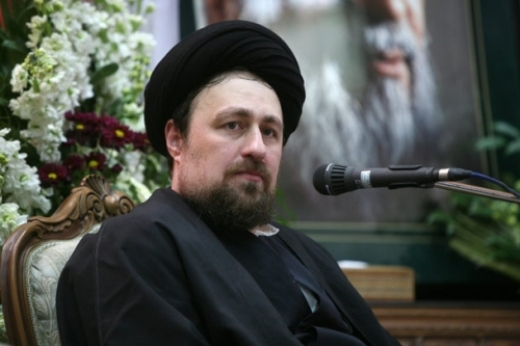Seyyed Hassan Khomeini, the grandson of the founder of the Islamic Republic, has described the destructive impact of ISIL on Islam as unprecedented and underlined the importance of efforts to find new ways, based on Islamic principles, to address the questions that arise in this day and age. The following is the translation of part of his comments on October 10 at a ceremony to officially launch the website of Imam Khomeini’s mausoleum:
“Genghis Khan, Tamerlane and the Tatars couldn’t have possibly delivered a blow heavier than the one ISIL has dealt to religion,” Seyyed Hassan Khomeini said.
Denouncing ISIL as a symbol of breakaway from the Islamic notion of Ijtihad [the utmost effort one can put forth in an activity], which was taught at an early stage by the Prophet Muhammad’s Household to their students, he stressed that in order to keep the Islamic thinking dynamic, Ijtihad must be regularly practiced.
“Salafism, which stands opposed to the school of thought championed by Prophet Muhammad’s Household, has emerged as a terrorist group by the name of ISIL. If the whole world had joined hands to disparage the Prophet Muhammad and Islam, they could not have done it any better. Even Genghis Khan and Tamerlane could not have ruined the reputation of the religion more thoroughly than [ISIL] did,” he added.
“The world should be told that the genuine school [of thought] offered by the Prophet Muhammad is what comes from his household,” Hassan Khomeini said.
“The [Imam Khomeini mausoleum] website is designed to respond to questions in a way that Ayatollah Khomeini would have answered if he were alive. We can treat questions sent to the site in two different ways: In reply to newly-raised questions, we can provide prefabricated responses like what Salafists did in the past which constitutes treading water with no prospect of moving forward.
“The other way is to employ Ijtihad to find answers to new questions which have been brought up of late. Such Ijtihad is not tantamount to critiquing and denying the past concepts. Rather, it amounts to extraction of new responses from old sources to the new questions. Those who are under the impression that there are prefabricated answers to the newly-raised questions are stuck in the past, because new questions require new responses,” he said.
“If one thinks that there is no need to refer to the past in exploring new answers, the approach they employ is review rather than Ijtihad which involves a quest for answers based on deep-rooted principles of the Islamic thinking.” He said in the newly-launched website, steps should be taken toward the second approach.
Underlining the need for exploring the ideology of Imam Khomeini, he described Ijtihad as a bid to evolve, complete and add dynamism to the social and political thoughts of Imam Khomeini.
“We should seek to explore new answers to today’s questions; not the ones which are prefabricated; we should not think that we do not need rudiments and principles either.”
He further stated, “The Supreme Leader has been one of the flag-bearers of practicing Ijtihad as far as Imam Khomeini’s thoughts are concerned. Imam took a rigid stance on al-Saud family, saying that in an unlikely event of pardoning Saddam he would never forgive the al-Sauds.
“However, exactly one year after his demise, ties were reestablished with the Saudi government and no one decried it as a measure in contrast with Imam’s ideology, because his followers explored a response in line with Imam’s line of thinking after practicing Ijtihad. If they had practiced prejudice, it would have meant that we had to sever ties with Riyadh forever.
